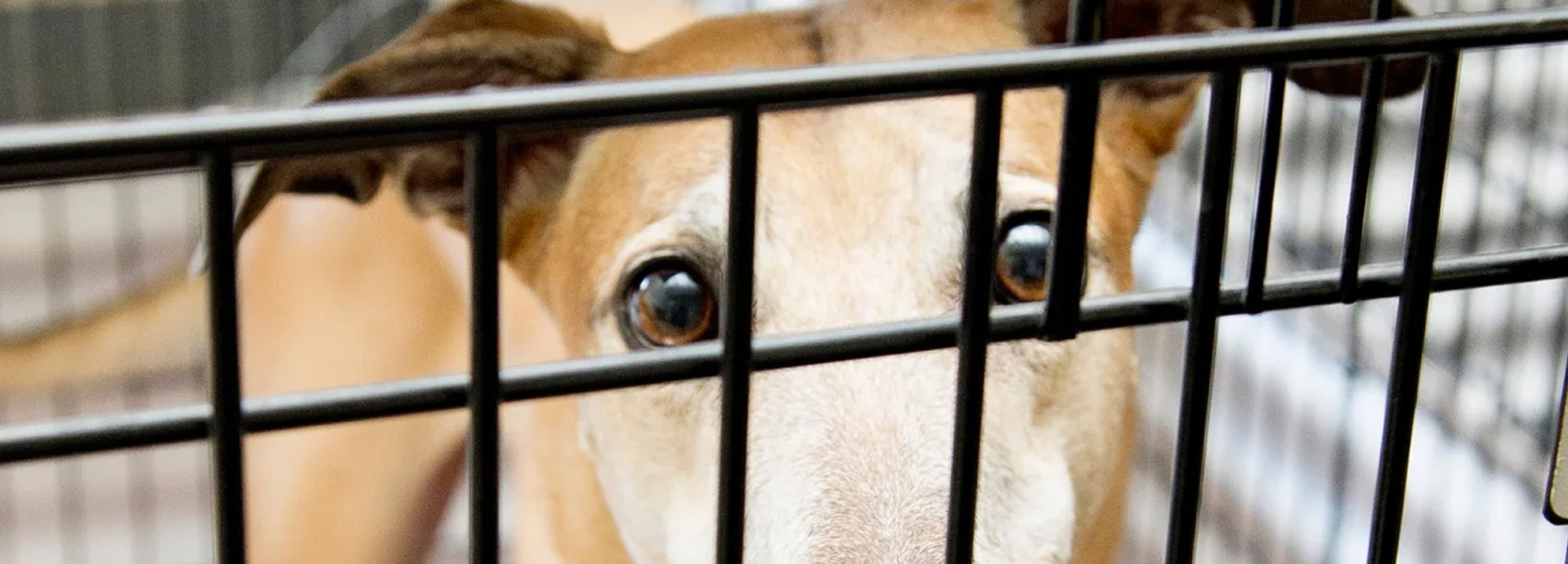Gov. Gavin Newsom signed a bill that will usher in major changes in how life-saving animal blood is collected in California and eventually free “blood slave” donor dogs from captivity.
The Golden State has long been alone in requiring blood donor animals to live in captive, closed colonies, where they’re bled every couple of weeks to save other animals’ lives — and make their keepers money. Supporters of this model said it ensures a reliable blood supply and keeps it free from disease.
But opponents call the model cruel, inhumane, antiquated and barbaric, especially since so many donor animals are greyhounds from the racing industry who have already suffered. Activists pushed for a model more closely resembling the human blood donor system, where pets are brought in, get health screenings, donate blood, then go home.
After coming close to signing previous iterations of the legislation several times over the years, Newsom signed the bipartisan California Pet Blood Bank Modernization Act, authored by Assemblyman Richard Bloom, D–Santa Monica, and Senate Republican Leader Scott Wilk, R-Santa Clarita, on Saturday, Oct. 9.
“I am elated that we are finally on the verge of replacing a long-standing inhumane practice and with a model program that will ensure the proper treatment of animal blood donors in California,” Bloom said in a prepared statement.
“This is a long overdue and needed reform for commercial animal blood banks,” Wilk said in a statement. “I am glad to see this change — that will save pets’ lives — finally become law.”
The closed colonies won’t, and can’t, disappear immediately.
The nation’s two big commercial blood banks — Hemopet in Garden Grove and Animal Blood Resources International, with facilities in the Bay Area — provide the majority of animal blood products circulated in the United States. The new law will void their licenses 18 months after data shows that volunteer collections produce as much animal blood as closed colonies.
The hope is that the closed colonies will voluntarily transition to community collection before that. Officials with Hemopet and ABRI did not immediately respond to requests for comment.
The new system will kick off with the new year. Veterinarians can apply to start community blood banks on Jan. 1. The California Department of Food and Agriculture will issue licenses and collect data on how much blood is produced by both types of blood banks.
Then healthy neighborhood dogs and cats can step in to lighten the load of captive greyhounds, then go home with a packet of treats.
Every other state in the nation allows this model, which has proven to be successful and efficient, said Shannon Keith, president of Beagle Freedom Project, one of the organizations pushing for the reform.
The bill will also bring much-needed transparency and oversight to the industry, said Judie Mancuso, founder and CEO of Social Compassion in Legislation, another of the bill’s sponsors. California law has shielded closed-colony blood banks from public scrutiny, keeping records about blood production and animal welfare private.
Kerry Drozd of Yucca Valley is an activist who has been railing against captive colonies for years. She adopted a greyhound from Hemopet after his tour of duty was done and found that he had lupus, sores and thyroid levels through the roof — she suspects he was on medication to boost his red blood cell count.
But after more than two years of loving care, Orion is doing well and has learned to get along with other dogs.
“Now his mind is healthy and his body is healthy,” Drozd said. “An injustice has been righted.”
Original Article: Pasadena Star-News

